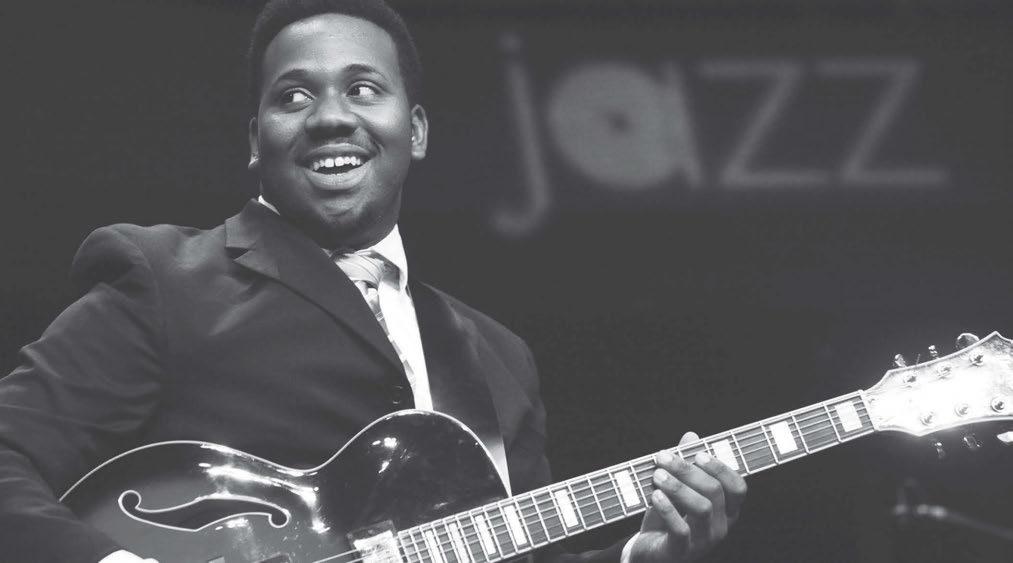
3 minute read
What’s New in Music Education
It’s been a while since we’ve been on the road but never fear, we’ve still been gathering goodies for our membership! Cak’s been in a reading mode, albeit, most of the books are on the iPad These look to be goodies for music teachers . Actually, the first one isn’t necessarily new, but should be on your professional reading list
This is Your Brain on Music: The Science of a Human Obsession - Daniel
Advertisement
J Levitin
“Endlessly stimulating, a marvelous overview, and one which only a deeply musical neuroscientist could give . ” --Oliver Sacks, M D The author helps unravel the mystery of the power of music, from its evolutionary origins that likely preceded language to its role in “hardwiring” the brain for language and learning . Discover how the various elements of music (rhythm, pitch, timbre, melody, etc ) activate and connect all parts of the brain; how music affects memory, movement, emotions and feelings; how the brain “listens,” processes and remembers music through Levitin’s lucid explanations, with music examples drawn from Bach to the Beatles .
World in Six Songs: How the Musical Brain Created Human Nature - Daniel
J Levitin
Neuroscience and evolutionary biology are linked by Levitin to argue that music is a core element of humanity Enjoyable to read, with anecdotes and interviews
Early Childhood Music Therapy and Autism Spectrum Disorders: Developing Potential in Young Children and their Families - Petra Kern and Marcia Humpal (Ed
)
This comprehensive book includes an overview of recent developments in Autism Spectrum Disorder (ASD) and effective music therapy interventions based on ASDspecific approaches, instructional strategies and techniques for use in children’s natural environments Therapists wishing to conduct family-centered practice and to help parents integrate music into home routines will find a wealth of information, together with insights from music therapists who are parents of children with ASD The book also looks at collaboration and consultation with interdisciplinary team members, including early childhood educators, speech-language pathologists and occupational therapists . Case scenarios, examples, checklists, charts, tip sheets, music scores, and online resources make this book accessible for everyone
Throughout the book’s sixteen chapters, renowned experts share knowledge and practical applications that will give music therapists, students, professionals, educators, families and anyone interested in working with young children with ASD, a detailed understanding of the implementation and range of music therapy practices that can benefit these children and their families .
Making Music Cooperatively: Using Cooperative Learning in Your Active Music-Making Classroom
- Carol Huffman
When cooperative learning is set in place, the students become teachers of other students, and the teacher becomes the facilitator Ideas come from the students and develop into learning and activity Students become more independent and responsible for their own learning and are more capable of applying what they have learned to solve problems within the framework of the subject . With this book, learn how to incorporate both cooperative learning and active music making together in your classroom . Find help in getting better organized when using cooperative learning . Create an environment where students can develop skills needed for an innovative 21st century Or ff, Dalcroze, Gordon, and Kodaly approaches are all conducive to using these strategies
Toss ‘N Talk-About Music Ball
Toss and catch the ball, and whatever your right thumb touches determines what happens next: name a song in a given category; sing a verse of a song containing a given word; sing a song of a given performer, etc Also, play a
Musical Chairs version: pass the ball in a circle, and when the music stops the one with the ball takes a turn The ball is 24 inches in diameter
Of course, you could make your own version, but the ink always wears off and this is just so nicely printed and it’s reasonably priced
We have a really cool product to tell you about in the next issue! Stay tuned!!
The Many Benefits of Music Education— Tips to Share with Parents
Here are some ways parents can assist their child’s school music educators:
Study the ways that music education develops creativity, instills disciplined work habits, and statistically correlates with gains in standardized test scores.
Speak with your local school board.
Be in touch with local music teachers on a regular basis. Offer to help out.
Take part in your school’s music booster organization.
Visit www.nafme.org for more Parent Resources.





